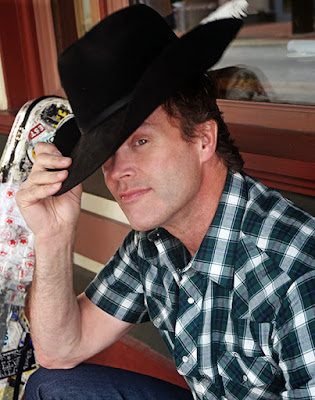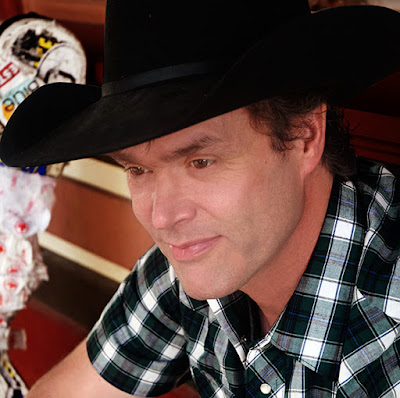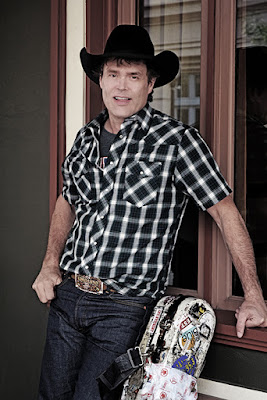All Photos: Alan Mercer
Corb Lund is an alt-country Singer/Songwriter from Alberta, Canada. He grew up in a ranching and rodeo family in the foothills of Southern Alberta, then spent the early years of his career writing songs and playing bass for the indie rock band called the Smalls.
Corb Lund’s music reflects his Western heritage and rock and roll roots. His distinct blend of Americana-meets-roots-meets-alt-country has attracted accolades from critics in Canada and the U.S., who have called him “one of the best contemporary country songwriters” (Popmatters) and one of the “10 New Country Artists You Need to Know” (Rolling Stone Country).
Lund’s 2015 release, ‘Things That Can’t Be Undone,’ was produced by Grammy Award-nominated producer Dave Cobb (Jason Isbell, Sturgill Simpson, Chris Stapleton). His previous record, 2014’s ‘Counterfeit Blues,’ was recorded at the legendary Sun Studio in Memphis, TN, and was the focus of a 2-hour CMT special. Previous to that, 2012’s ‘Cabin Fever’ debuted at #1 on the Billboard Canadian Charts, and ‘Hair In My Eyes Like A Highland Steer’ is certified Platinum in Canada.
Along with his band, the Hurtin’ Albertans, Corb Lund tours extensively throughout Canada, the U.S., Europe, and Australia. Currently signed to New West Records, Corb is an eight-time Canadian Country Music Awards Roots Artist of the Year, the 2017 BreakOut West Roots Solo Artist of the Year, and has many other awards and accolades, including a JUNO Award, under his belt.
Alan Mercer: Corb, you are a remarkable talent. Your songs seem to come from your real life. Is that true?
Corb Lund: A lot of them are or they are based in realistic scenarios that I’ve grown up in. Not every detail is true, but the settings are pretty accurate. I have a colorful cast of ancestors I can draw from.
AM: Tell me about your family.
CL: Both sides homesteaded in Alberta around the turn of the century and both sides of my family are cattle ranchers and rodeo people. Before that they were in Utah and Nevada. I have a pretty consistent ancestry. Both sides of my family are very western. We have a lot of card cheats and bootleggers and rodeo people.
AM: I’ve never heard another artist write and sing about the topics you do, and you do it so well. Your lyrics are very ‘wordy’ and I love that.
CL: It’s a curse. (Laughter)
AM: How do you write and remember all those lyrics?
CL: In terms of writing a lot of words versus not a lot of words…writing a lot of words is not necessarily more difficult than writing fewer words. It can be the opposite, but remembering them is a bitch! Just spitting them all out is sometimes difficult.
AM: And you often sing very fast. I can’t sing along.
CL: Yeah, I spend a lot of time on enunciation. A funny thing about ‘one of those’ songs is it’s like running down hill and losing your footing if you get lost. You pretty much have to wait until the next verse to start again.
AM: That doesn’t happen to you does it?
CL: It does happen. On occasion, no matter what, you will screw up. All you can do is throw up your hands. People like to see you being human so it’s alright.
AM: Corb, you seem to have more than musical ability. I really see a personality in you. Have you ever thought of acting?
CL: Yes, I actually took a theater course this Spring in New York just to dabble my feet in it.
AM: I think you would be really good at acting. Are you too absorbed in music now to pursue it?
CL: The longer I am in the music business and the more success I have, I find I have less time for the actual music itself. I’m struggling with that now. I started out the full indie grassroots route, so you learn to do everything. You print your own T-shirts and you book your own shows. I was my own publicist for a long time.
AM: That is just so much work for one person.
CL: I don’t mind doing any of this work, it’s just a matter of hours in a day. I wish I could spend 8 hours a day just on music alone, instead of just one or two.
AM: I can’t play somebody one Corb Lund song and think they will ‘get you’ because your music has so many styles. You even have a Jazz style in some of your Western Swing songs.
CL: There’s a little of that in there. I have a very basic jazz vocabulary in terms of harmony, but my bass player is a legit jazz guy.
AM: Did you ever study jazz?
CL: I was in jazz school when I was twenty-one and that’s only because they didn’t have a Black Sabbath school. At that time, I really didn’t like it. I never had aspirations to be a jazz player, but now as a songwriter I found the harmonic vocabulary you get from tipping your toe into the jazz pool is much bigger.
AM: Didn’t you start out more on the Punk music scene?
CL: Yeah, kind of. My family are all Cowboys but when I was fifteen I got into other types of music.
AM: I can hear the influence, especially in your early works.
CL: I did a long stint as one of the songwriters in an underground metal band that sounds like Slayer mixed with Black Sabbath with a little bit of Doors. We weren’t really a Punk Rock band, but we worked in those circles. We had that do it yourself ethic. We had a real strong motivation to be as unique as possible. I think had I gone straight into Country music without having the Metal background, I’d be a more pedestrian songwriter. In Country radio the whole idea is to be homogenous. That’s the goal, but my writing goal, that I’ve had baked into my genetics from the early days, is to be unique, so I’ve always been a bit of a maverick. For better or for worse that is how I approach music.
AM: One of your songs that stands out to me is ‘Cows Around.’
CL: Some of my songs are pretty serious and some are humorous.
AM: You have a lot of humor and I love it!
CL: I sometimes wonder if it works against me. Those songs are quite popular, but I worry if people know me for those songs, will they take me less seriously?
AM: Your latest album is more serious and it’s brilliant. Are you recording anything new yet?
CL: No, I’m in the middle of writing the next album. I’ve got a lot more agricultural stuff.
AM: I love the agricultural and the veterinarian songs!
CL: Yeah, we’ve definitely created a small niche. I like to think that some of the fun songs like ‘Truck Got Stuck’ that people love, if you peel away a little you will see there is some depth in there too. On the surface it’s fun.
AM: I find myself giggling when I listen to your music, especially those early recordings.
CL: There is a quirkiness in those songs. It’s a Country Folk thing going on.
AM: And the album of some of your favorite songs you recorded in Memphis, ‘Counterfeit Blues’ is amazing!
CL: That album is filled with songs we’ve performed a thousand times. We were given two nights to record at Sun Studios, so we just banged them out. It functions as a live, gritty greatest hits album. It’s a new record for lots of people who have never heard my earlier work but in Canada it’s a greatest hits.
AM: You must be happy with it, aren’t you?
CL: Yes, I think in retrospect, the live versions of the songs are grittier and better than the original recordings. Partly because we’ve been playing them for ten years and partly because we just turned on the mikes and started playing. It’s organic with no overdubs.
AM: I really like it.
CL: I’m glad you like it. I’ve recorded eight albums. But the first one that took off for me was ‘Five Dollar Bill’ and then followed ‘Hair In My Eyes Like A Highland Steer’ and they were fairly popular in Canada. They are relatively unknown in the States even though they achieved gold status in Canada.








